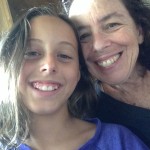
I always gobble up anything that I find on the subject of friendship. So I was delighted when a friend sent me a link to an article at “brain pickings” by Maria Popova about the friendship between celebrated environmental author Rachel Carson and her neighbor Dorothy Freeman.
For those of us who have experienced a deep and loving friendship it is not surprising to read that when Rachel wrote to her best friend Dorothy she used the most tender of words, such as “my very own darling,” in her salutation. The friendship with Dorothy was essential to Rachel’s creative and emotional life. Rachel knew from the moment she met Dorothy in 1953 that their relationship was going to be special. After visiting the Freemans’ home and staying the night, Carson wrote to Dorothy, “I am certain, my dearest, that it will be forever a joy, of increasing loveliness with the years, and that in the intervals when being separated, we cannot have all the happiness of Wednesday, there will be, in each of our hearts, a little oasis of peace and ‘sweet dreams’ where the other is.”
The letters between the two friends can be found in Always, Rachel: The Letters of Rachel Carson and Dorothy Freeman, 1952 – 1964 – The Story of a Remarkable Friendship, edited by Martha Freeman. I love the way Carson describes to Dorothy how their friendship filled the years they had together: “You have come to occupy a place in my life that no one else could fill, and it is strange now to contemplate all the empty years when you weren’t there. But perhaps we shouldn’t regret those years — perhaps instead we should just give ourselves over to wonder and gratitude that a friendship so satisfying and so full of joy and beauty could come to each of us in the middle years — when, perhaps, we needed it most!”
Is there a particular time in life when you need the joy of such a friendship? I don’t know if I’d pick one segment of my life for that. I was fortunate to have had my best friend Madeline for 40 years, up until I was 58, but now that I’ve turned 70, I fervently wish she was still here with me to help shore up the more difficult aging years.








